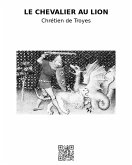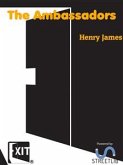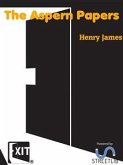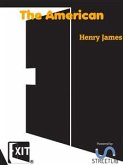CHAPTER I.
I had simply, I suppose, a change of heart, and it must have begun when I received my manuscript back from Mr. Pinhorn. Mr. Pinhorn was my “chief,” as he was called in the office: he had the high mission of bringing the paper up. This was a weekly periodical, which had been supposed to be almost past redemption when he took hold of it. It was Mr. Deedy who had let the thing down so dreadfully: he was never mentioned in the office now save in connexion with that misdemeanour. Young as I was I had been in a manner taken over from Mr. Deedy, who had been owner as well as editor; forming part of a promiscuous lot, mainly plant and office-furniture, which poor Mrs. Deedy, in her bereavement and depression, parted with at a rough valuation. I could account for my continuity but on the supposition that I had been cheap. I rather resented the practice of fathering all flatness on my late protector, who was in his unhonoured grave; but as I had my way to make I found matter enough for complacency in being on a “staff.” At the same time I was aware of my exposure to suspicion as a product of the old lowering system. This made me feel I was doubly bound to have ideas, and had doubtless been at the bottom of my proposing to Mr. Pinhorn that I should lay my lean hands on Neil Paraday. I remember how he looked at me—quite, to begin with, as if he had never heard of this celebrity, who indeed at that moment was by no means in the centre of the heavens; and even when I had knowingly explained he expressed but little confidence in the demand for any such stuff. When I had reminded him that the great principle on which we were supposed to work was just to create the demand we required, he considered a moment and then returned: “I see—you want to write him up.”
I had simply, I suppose, a change of heart, and it must have begun when I received my manuscript back from Mr. Pinhorn. Mr. Pinhorn was my “chief,” as he was called in the office: he had the high mission of bringing the paper up. This was a weekly periodical, which had been supposed to be almost past redemption when he took hold of it. It was Mr. Deedy who had let the thing down so dreadfully: he was never mentioned in the office now save in connexion with that misdemeanour. Young as I was I had been in a manner taken over from Mr. Deedy, who had been owner as well as editor; forming part of a promiscuous lot, mainly plant and office-furniture, which poor Mrs. Deedy, in her bereavement and depression, parted with at a rough valuation. I could account for my continuity but on the supposition that I had been cheap. I rather resented the practice of fathering all flatness on my late protector, who was in his unhonoured grave; but as I had my way to make I found matter enough for complacency in being on a “staff.” At the same time I was aware of my exposure to suspicion as a product of the old lowering system. This made me feel I was doubly bound to have ideas, and had doubtless been at the bottom of my proposing to Mr. Pinhorn that I should lay my lean hands on Neil Paraday. I remember how he looked at me—quite, to begin with, as if he had never heard of this celebrity, who indeed at that moment was by no means in the centre of the heavens; and even when I had knowingly explained he expressed but little confidence in the demand for any such stuff. When I had reminded him that the great principle on which we were supposed to work was just to create the demand we required, he considered a moment and then returned: “I see—you want to write him up.”









